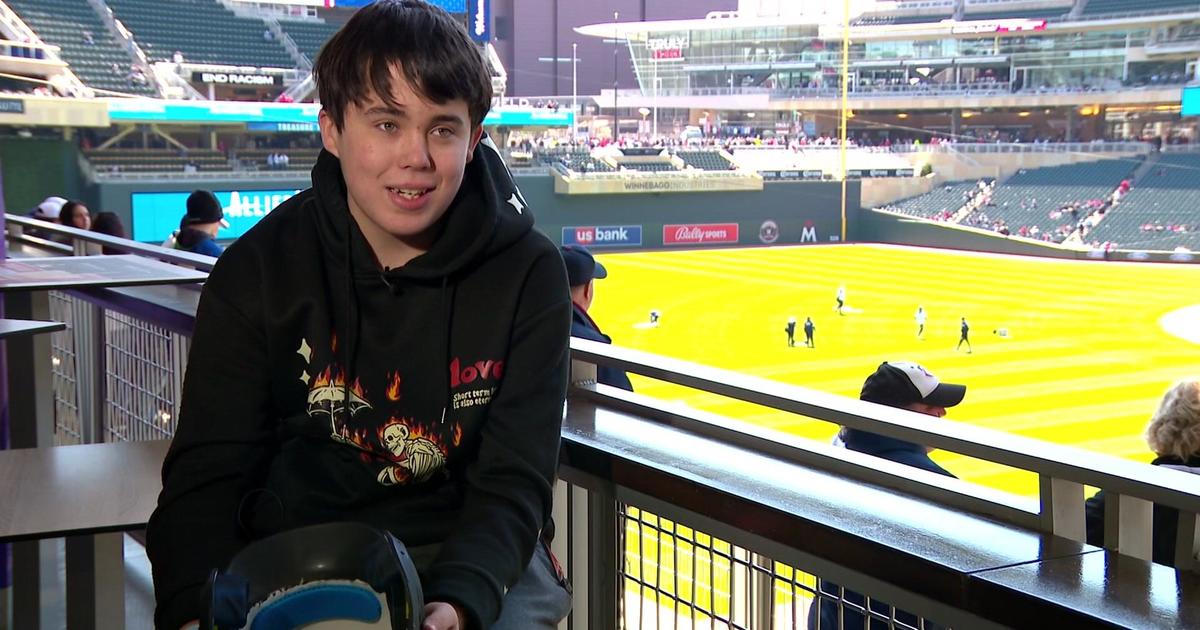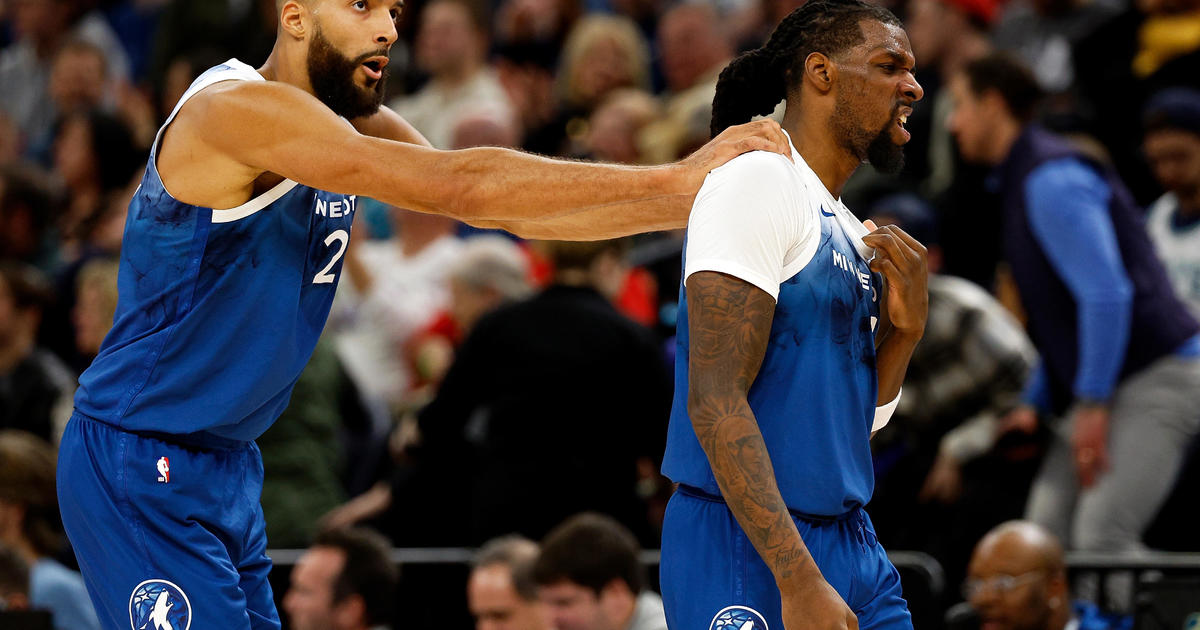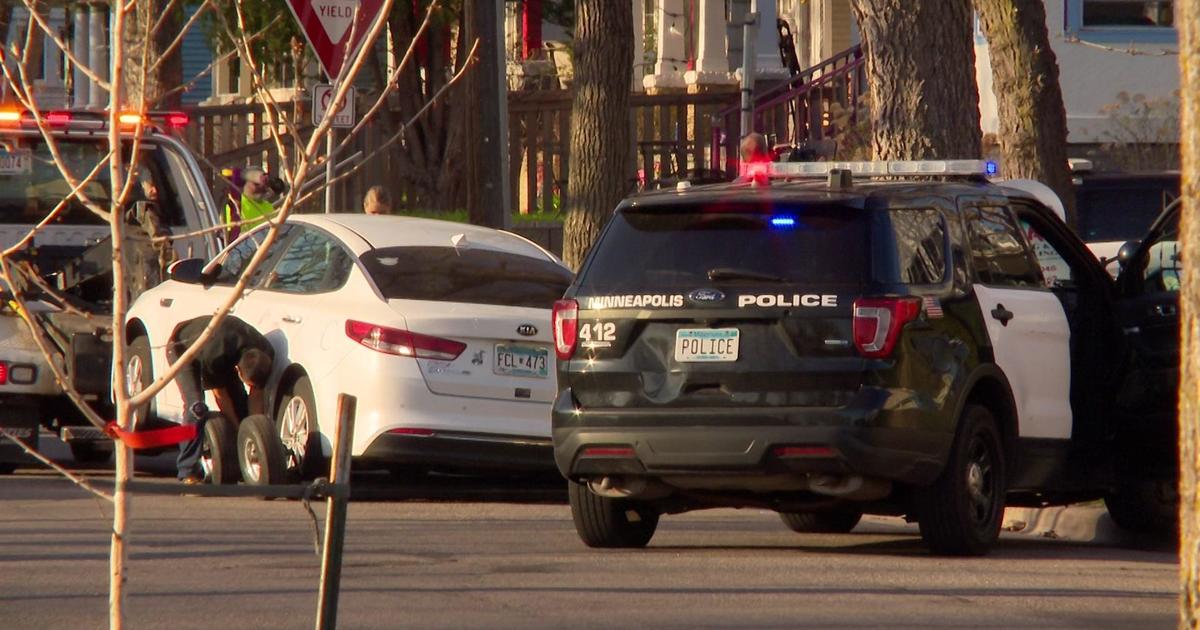150 Minn. Youth Hockey Players Participating In Concussion Study
MINNEAPOLIS (WCCO) -- This fall, 150 Minnesota youth hockey players are taking part in a study that's using a new concussion test to measure brainwaves. The studies' directors believe the test could someday give parents an immediate diagnosis and peace of mind.
Last year, Dr. Sarah Haecker's then 12-year-old son, Hudson, was diagnosed with a concussion after a collision playing for his Minneapolis youth hockey team.
"It's a parents' panic to see a kid lying on the ground," Haecker said.
Hudson recovered and was back on the ice in two weeks. Ironically, Haecker is a clinical researcher who had been studying head injuries. After her son's concussion, she decided to have her company, Adjuvant Partners, study a new concussion test being evaluated by the Food and Drug Administration (FDA).
"Hudson's injuries and the other injuries on the team fed a lot of the motivation behind the study," Haecker said.
Haecker then recruited 150 youth hockey players from Minneapolis, Edina and Bloomington to be part of the study of the Brain Network Activation test, or BNA test.
At the Noran Neurological Clinic in Minneapolis, players are fitted with a cap with electrodes and complete an hour-long test on a computer.
"If I would have had the ability with Hudson after the injury to see this test or use this test it would have been a huge relief to me," Haecker, the study's executive director, said.
The test measures brain activity. Players take it at the beginning of the season, again after a concussion and during recovery, and at the end of the season.
One of the players in the study is 13-year-old Huck Sorock.
"He was skateboarding in the summer when he was 8 years old and he was profusely vomiting. We took him to the hospital and he had a concussion," Brad Sorock said.
Huck has had two concussions in hockey where the symptoms were not as clear.
"It could have been whiplash. It could have been that he just got hit," Brad Sorock said.
That's why Brad Sorock wanted his son to be part of the study.
"We love the game, but if he had multiple concussions, there is a point where you say, 'enough is enough,'" Brad Sorock said.
In the test, participants respond to test questions on a computer while the electrodes measure their brain activity. It's the mapping of the brain that makes this test different from the traditional computer test that many young athletes currently take.
The traditional computerized concussion tests have come under fire for being inconclusive. Studies have shown players can do poorly on the test not because of an injury, but because they aren't following directions or are simply not paying attention.
The BNA study's medical director, Dr. Steven Lebow, says in his opinion the traditional computer test does not measure a concussion.
"I don't think it helps at all. It's not better than talking to the patient," Lebow said.
Lebow says the BNA test is a breakthrough and that doctors can actually see the extent of the injury much like an X-ray of a broken bone.
"When you look at the material that was generated, you can say, 'This was here. Now it's here. Something is wrong,'" Lebow said. "It's not a little bit better. It's a factor of 10 times better."
Haecker showed a BNA test image of a young football player's brain before a concussion. A BNA test after the injury shows a very different image of the players' brain.
"The functional activity of the brain was much lower after the injury," Haecker said.
The hope is that this technology could someday be used like an X-ray to tell not only when the player has a concussion but when they don't. Certainty is what Brad Sorock and Haecker would like for their kids.
"The pressure of me to decide when I think he should go back. I want to be able to be conclusive if there is that incident where he gets hit," Brad Sorock said.
Haecker plans on publishing her findings on the Minnesota hockey players next spring. The test's manufacturer hopes to get approval from the FDA sometime next year.
For more information on the study, you can click on this link.



